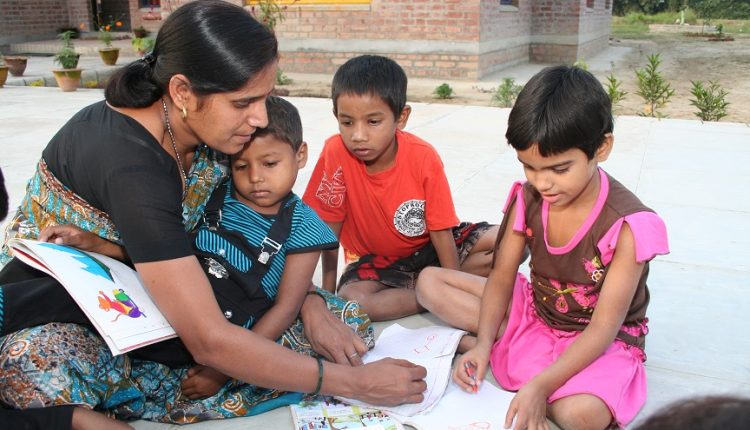Awareness is the key factor that can help effectively address mental health related challenges: experts during a virtual briefing conducted by SOS Children’s Villages India
Mumbai : Identification of mental health issues among children, that can be treated with medical interventions often get delayed due to lack of awareness, said experts during a virtual briefing conducted by SOS Children’s Villages India ahead of World Mental Health Day.
The WHO estimates that the burden of mental health problems in India is 2443 disability-adjusted life years (DALYs) per 10,000 population while as per the National Health Survey 2016, 6-7% of the population suffers from mental disorders. In order to help children, achieve their full potential, ensuring, sustaining and enhancing mental wellbeing is vital.
Dr. Nimesh G. Desai, President and Mentor of Manovikas E-Gyanshala; Former Director of the Institute of Human Behaviour and Allied Sciences (IHBAS); Former Faculty Member, National Institute of Mental Health & Neurosciences (NIMHANS), Bangalore and AIIMS; Mr. Sumanta Kar, Secretary General, SOS Children’s Villages India, and Ms. Reena Chhatriya, SOS Mother, took part in the discussion.
While addressing the gravity of mental health issues in India, Dr. Nimesh G. Desai, said: “It is not only vital to sensitise children, caregivers, and family members about mental health, but it is also important to sensitise peers about the gravity of this subject and how they could possibly support someone struggling with the issue, in various ways. Support of family and peers is vital.” Talking about the early identification of symptoms, Dr. Desai added, “Withdrawal, anger issues, drastic change in eating or sleeping habits and such require attention, addressal and support. Direct expression or indirect evidence of negative thoughts, pessimism and hopelessness must be seen as a red alert. A decade ago, our supposition that children don’t have suicidal tendencies has been proven wrong. Unfortunately, children do suffer from depression, either because of their genetic make-up or because of circumstances, trauma et cetera. Adolescence is a sensitive age, where children go through extreme emotional turmoil, besides physical and mental changes. The general resilience of human beings is more at a young age, and so as a population sub-group they fare well, despite apparent and significant distress; this helps in getting through with minimal to moderate support, while some young people may need specialised professional attention.”
Mr. Sumanta Kar commented, “At SOS Children’s Villages India, we take mental wellbeing very seriously. Initiatives to enhance this vital aspect of health are taken, on a consistent basis, for Mothers, caregivers, children and co-workers. The pandemic was an extremely challenging phase, for which EmoAid, among others, was introduced. Besides this, for children programmes like the resilience building programme, the new child entry programme and the positive youth development programme are some examples. Health of the caregiver or Mother is paramount, as they carry such an important responsibility on their shoulder. Programmes such as Emotional Literacy and SEL have been actively introduced. The crux of the matter remains that having a solid support system is absolutely essential. This includes a family, siblings and friends. All our Basket of Care Solutions focus on securing this by preventing child abandonment or / and extending family like care to parentless or abandoned children. Spending quality time with children and a caring family environment is critical for the mental well-being of children. Encouraging Participation of children in all decision making at early age and developing social skills are important. While caregivers focus on the wellbeing of the children, they should also find time for themselves.”
SOS Mother Reena Chhatriya said, “I have been associated with SOS Children’s Villages India for over 8 years and have brought-up 10 children so far. Children hail from different backgrounds and have different histories, so each child has to be approached differently. For this, multi-dimensional support is availed from a wide variety of experts. I remember the pandemic, when the situation was especially tough, as we were all confined; anxiety and stress levels because of uncertainness and fear were high. We tried to tide over these times by cooking exquisite meals with the help of recipes available on the internet, meditation, yoga, dance, creative indoor games, and other group activities. Besides, it is important to observe, be aware and keep communication channels open.”
It was further concluded in the session that increased interest in mental health issues has been credited the acceptance of the same in society. With people becoming aware, help is sought early enough for interventions to work out well.


